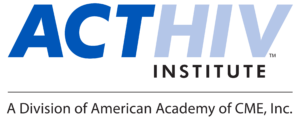Case Studies in Cardiovascular Disease Prevention and People with HIV
|
Release Date: November 6, 2024 |
 |
Support for this activity has been made possible through an educational grant from Gilead Sciences. |
Instructions on How to Receive Certificate of Credit/Participation
- There are no fees to participate in the activity.
- Participants must view the activity description, including disclosures, and watch the video.
- At the conclusion of the program, go to: https://form.jotform.com/AcademyCME/23AC362W
- Your certificate will be emailed to you within 24 hours
- If you have any questions, please contact [email protected] for assistance.
Resources
-
DHHS Recommendations for the Use of Statin Therapy as Primary Prevention of Atherosclerotic Cardiovascular Disease in People with HIV
-
REPRIEVE Study
-
Feinstein et al. Characteristics, Prevention, and Management of Cardiovascular Disease in People Living With HIV: A Scientific Statement From the American Heart Association. Circulation 2019.
-
CVD risk scores
